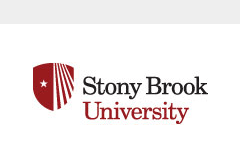OER Panel Two: Digitally augmenting a hands-on dissection lab experience: first steps toward transitioning vertebrate anatomy training into the 21st century
Location
Zoom
Document Type
Panel Discussion
Start Date
28-10-2021 1:30 PM
End Date
28-10-2021 1:40 PM
Description
Natasha Vitek is a vertebrate paleontologist focused on understanding how evolution scales up from population-level processes today to the millennia of the fossil record. Her teaching focuses on expanding the breadth and depth of students’ view of the history of life on earth. Prior to arrival at Stony Brook, she earned degrees from Yale University (B.S.), the University of Texas at Austin (M.S.), and the University of Florida (Ph.D.) working with physical specimens of vertebrate skeletons throughout. Currently, using morphometrics, genomics, and museum collections she integrates modern studies of microevolution with the fossil record to study the evolutionary consequences of intraspecific variation over long time scales. She continues to experiment with new ways of bringing vertebrate specimens to students at all experience levels and of training students to perceive the biological information preserved in vertebrate bodies.
OER Panel Two: Digitally augmenting a hands-on dissection lab experience: first steps toward transitioning vertebrate anatomy training into the 21st century
Zoom
Natasha Vitek is a vertebrate paleontologist focused on understanding how evolution scales up from population-level processes today to the millennia of the fossil record. Her teaching focuses on expanding the breadth and depth of students’ view of the history of life on earth. Prior to arrival at Stony Brook, she earned degrees from Yale University (B.S.), the University of Texas at Austin (M.S.), and the University of Florida (Ph.D.) working with physical specimens of vertebrate skeletons throughout. Currently, using morphometrics, genomics, and museum collections she integrates modern studies of microevolution with the fossil record to study the evolutionary consequences of intraspecific variation over long time scales. She continues to experiment with new ways of bringing vertebrate specimens to students at all experience levels and of training students to perceive the biological information preserved in vertebrate bodies.


Comments
Video segment: 2:54:35 ~ 3:03:55